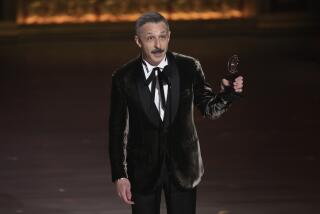Why a weirdly concocted Tony Awards was the booster shot Broadway needed
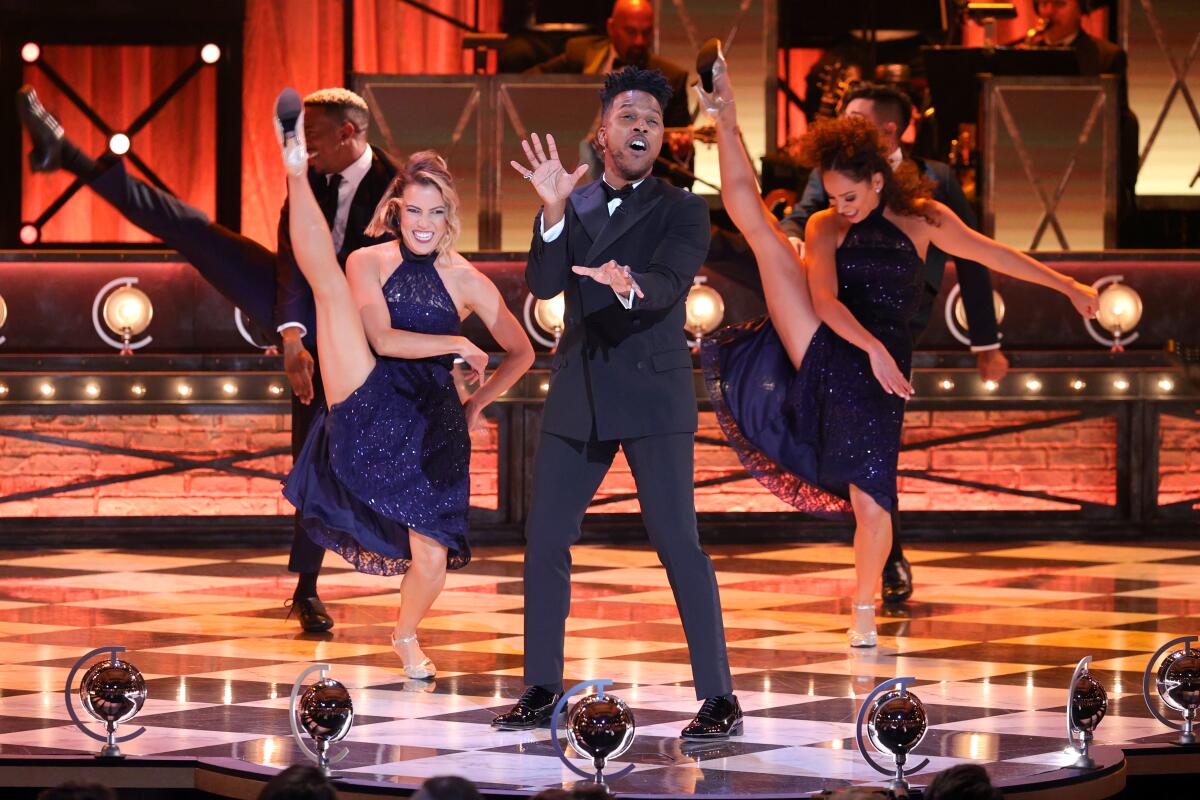
The long-postponed Tony Awards were presented on Sunday night to recognize the best of a Broadway season that was cut short when COVID-19 forced theaters to close in March last year.
“Moulin Rouge! The Musical” dominated the night, winning 10 awards, including awards for director (Alex Timbers) and best musical. But will this colorful, souped-up spectacle hasten audiences’ return to Broadway? The mainstream loves a feverish hit, but the masses have grown understandably squeamish about traveling en masse.
The idea of hopping on a plane for a weekend of plays and musicals seems like an activity from a distant age. It certainly wasn’t easy to hark back to the 2019-20 season, when respiratory particles were free to float wherever they pleased, hugs and handshakes didn’t require PPE, and the only people wearing masks were the cast members of “The Lion King” and the guy playing Phantom in Andrew Lloyd Webber’s musical.
Not even the most bulldozing Broadway producer could pretend that we’re back to normal. The phase we’re in now is comparable to that period in a protracted war when the outcome seems clear but soldiers continue to fall on battlefields where the news has yet to arrive.
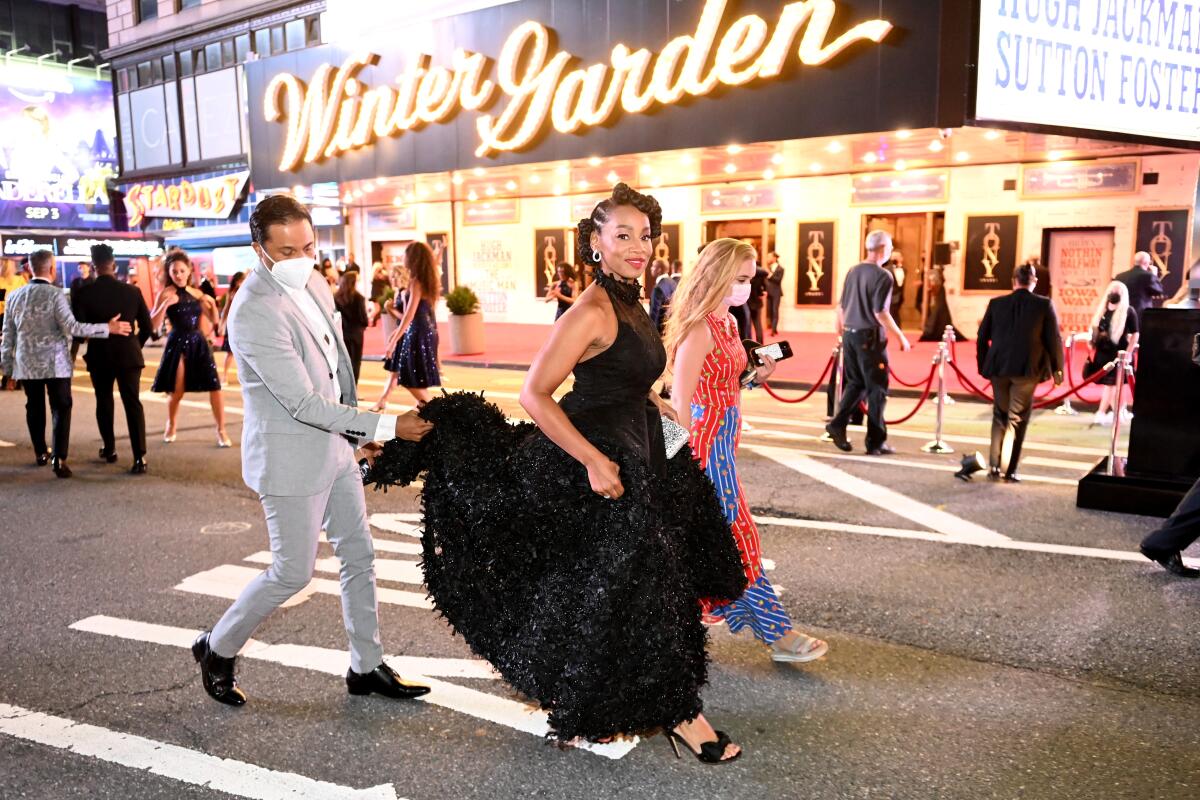
But this reunion of the Broadway community jogged the memory of what we’ve been missing these last 18 months — virtuosity and emotional courage made flesh. (Thunderously bringing the lesson home, Jennifer Holliday performed “And I Am Telling You,” her showstopper from “Dreamgirls,” and basically poleaxed the room.)
The show indeed must go on, even if the ceremony, held at Broadway’s Winter Garden Theatre, had to be repackaged to fit these anomalous times. Audra McDonald, who collects Tony Awards the way my grandmother used to collect Waterford crystal, hosted the evening’s first half, when most of the awards were doled out.
This part of the evening was secreted away on Paramount+. The second half, a two-hour televised concert emceed by “Hamilton” star Leslie Odom Jr., was shown on CBS. Part celebration, part commercial, “The Tony Awards Present: Broadway’s Back!” was designed to resurrect box office for an industry struggling to return from the dead. The live-streamed first half made the more persuasive case.
Three of the biggest awards (for play, musical and best play revival) were announced on the CBS telecast, leaving West Coast audiences (who had no choice but to watch the concert on tape delay) in the lurch. Why the second half couldn’t be made available on Paramount+ in real time isn’t so much a mystery as a ludicrous anachronism, sanctioned by East Coast obliviousness.
Yet it’s hard to imagine that the suspense was killing anybody. As a nation, we’ve endured a plague and an attempted political coup and are still working through a racial reckoning. Whether “Moulin Rouge! The Musical” would win over “Jagged Little Pill,” the Alanis Morissette show, was mostly of concern to the companies of these shows. But even producer Carmen Pavlovic had to acknowledge when sensitively accepting the award for “Moulin Rouge!” that it makes little sense to distinguish between winners and losers when just making work right now is a victory.
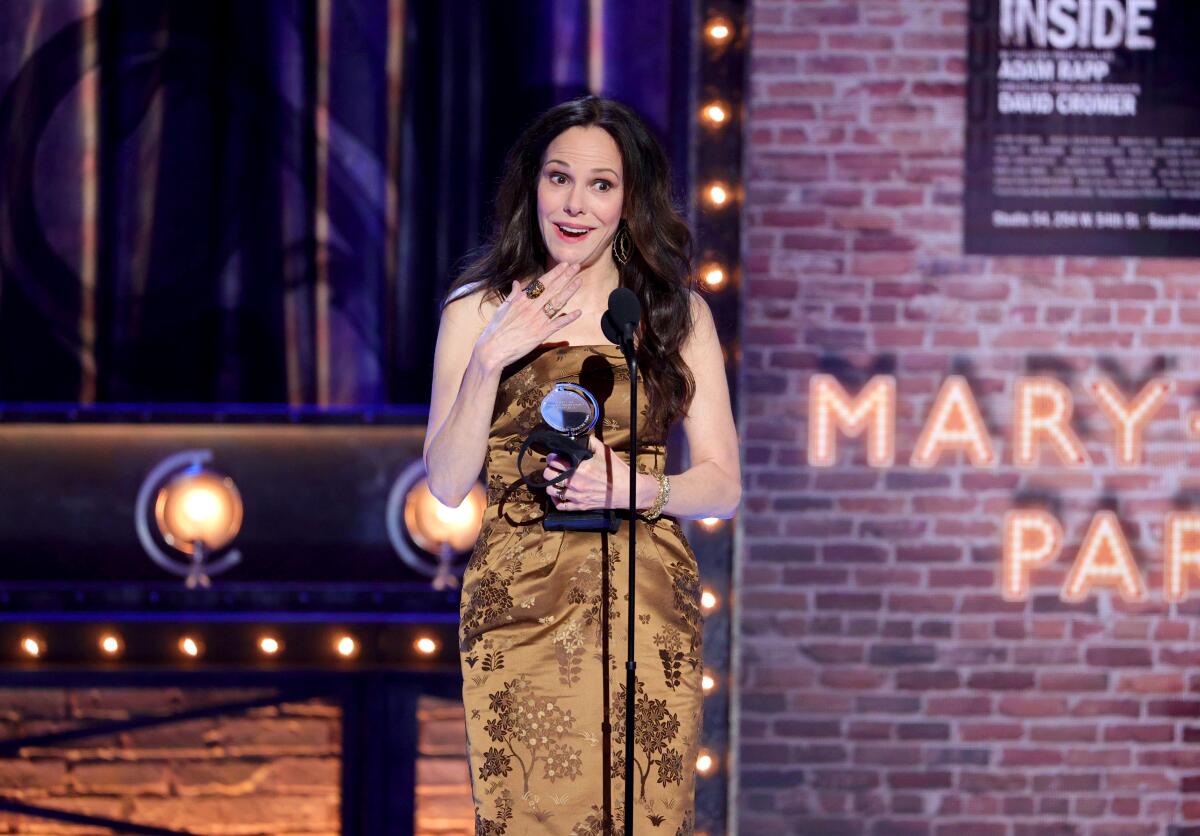
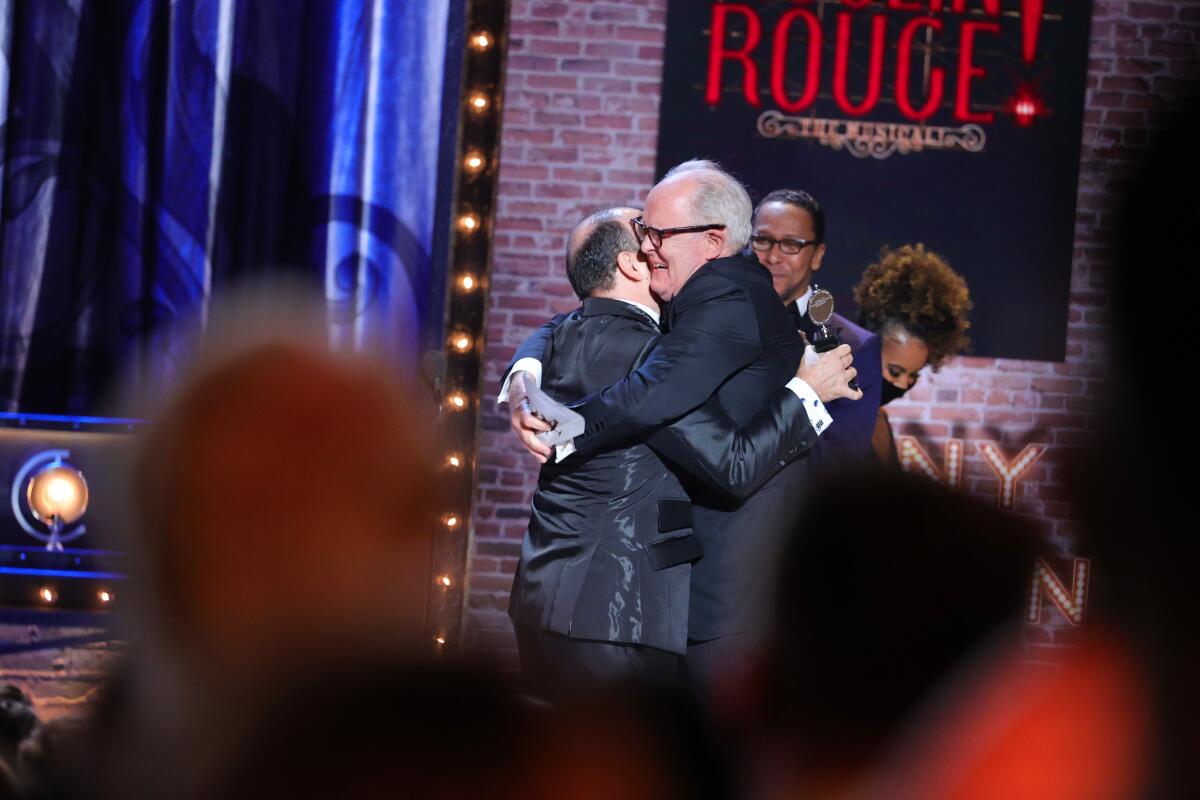
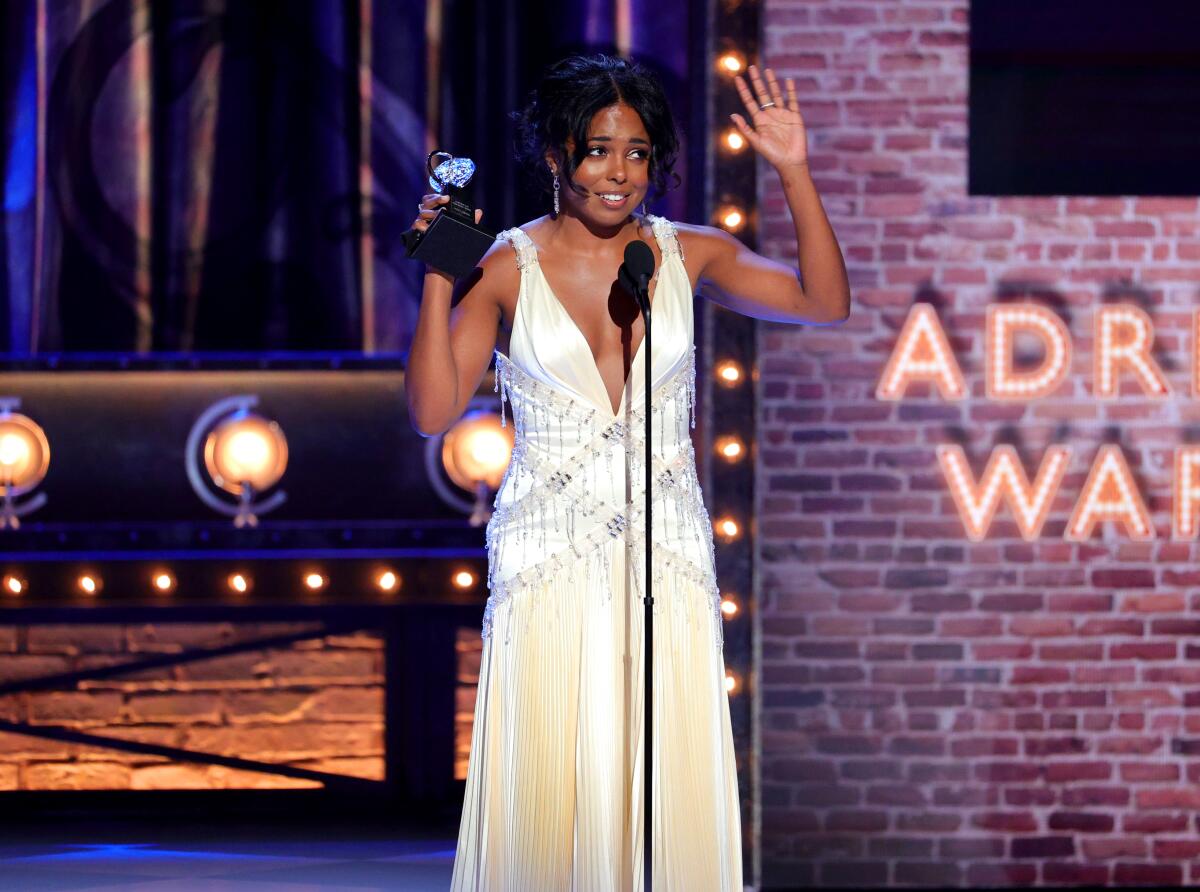
The competition, in any case, was noticeably sparse, given the number of productions that either failed to open or were deemed ineligible because not enough Tony voters were able to see them. The musical revival category was suspended as a result. (A pity for Ivo van Hove’s pulsating multimedia revival of “West Side Story,” which had opened only a few weeks before the shutdown and is now an official casualty of the pandemic.)
In one of the more curious footnotes of these awards, no original musical was up for original score. (The award went to Christopher Nightingale for “A Christmas Carol,” which will reopen the Ahmanson Theatre in November as a five-time Tony winner.)
Stranger still, Aaron Tveit, the star of “Moulin Rouge!,” was the only nominee for lead actor in a musical. Fortunately for him, he was spared the humiliation of losing, which would have happened in the unlikely case he had not received 60% of the affirmative vote.
I correctly predicted that I would break out in tears when Danny Burstein won for his featured performance in “Moulin Rouge!” But it was not for the reason I assumed.
In a true annus horribilis, Burstein was hospitalized last year with COVID-19 and later suffered the death of his wife, the luminous Broadway soprano Rebecca Luker, who had amyotrophic lateral sclerosis, commonly known as ALS or Lou Gehrig’s disease. His seventh nomination proved the charm, but Burstein composedly took the opportunity to express his gratitude to the theater community for its support. His speech exemplified strength and survival, a moving testament to his grief.
I wasn’t really all that invested in who won in this truncated Broadway season, but I found myself whooping with approval all the same when the lead actress in a play award went to Mary-Louise Parker for her unerring performance in Adam Rapp’s deeply satisfying “The Sound Inside.” And all I could do was bow down to my computer screen when Adrienne Warren took the prize for lead aactress in a musical for nearly out-Tina-ing Tina Tuner in “Tina — The Tina Turner Musical.”
Lois Smith, her acting talent evergreen at 90, won for her small but profoundly affecting performance as the sole female ensemble member in Matthew López‘s “The Inheritance,” which had a surprisingly strong showing, with awards for lead actor (Andrew Burnap), director (Stephen Daldry) and, in a stunning upset, best play.
Jeremy O. Harris’ “Slave Play” was widely expected to be the night’s big winner for drama. No play in recent memory has had such a seismic impact on the culture of Broadway producing. Harris showed that new ways of drawing an audience were possible and that Black playwrights didn’t have to tread gingerly on white fragility to be deemed successful. But being a revolutionary in a business as clannishly traditional as Broadway can lose you Tony voters.
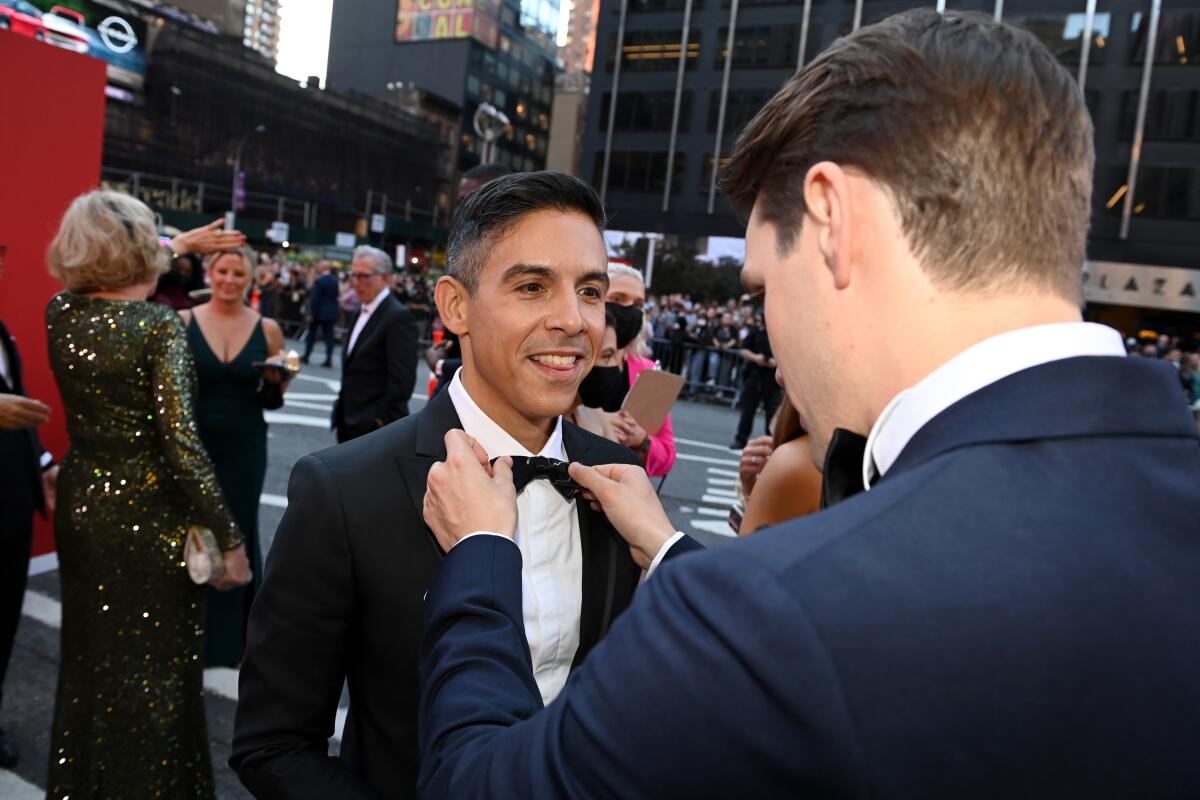
López’s epic, two-part AIDS drama, a critical hit in London, closed earlier than expected in New York. But its more familiar subject matter clearly left a haunting impression, and so the award went to a queer Latino playwright instead of a queer Black playwright. López claimed both sides of his identity in his acceptance speech, noting that he was the first Latino to win in this category. But there were tremors of disquiet that a play focusing on white lives was once again given the nod over a work concentrating on the experiences of characters of color.
Director Kenny Leon delivered a rousing speech when accepting the best play revival award for “A Soldier’s Play.” “Let’s do better,” he exhorted the community after making the point that we all get better when diverse voices are finally allowed to tell their stories.
Smith, quoting from E.M. Forster’s “Howards End,” one of the sources of López’s “The Inheritance,” put that matter a different way when she reminded the audience that the purpose of live theater can be summed up in two words: “Only connect.”
More to Read
The biggest entertainment stories
Get our big stories about Hollywood, film, television, music, arts, culture and more right in your inbox as soon as they publish.
You may occasionally receive promotional content from the Los Angeles Times.


